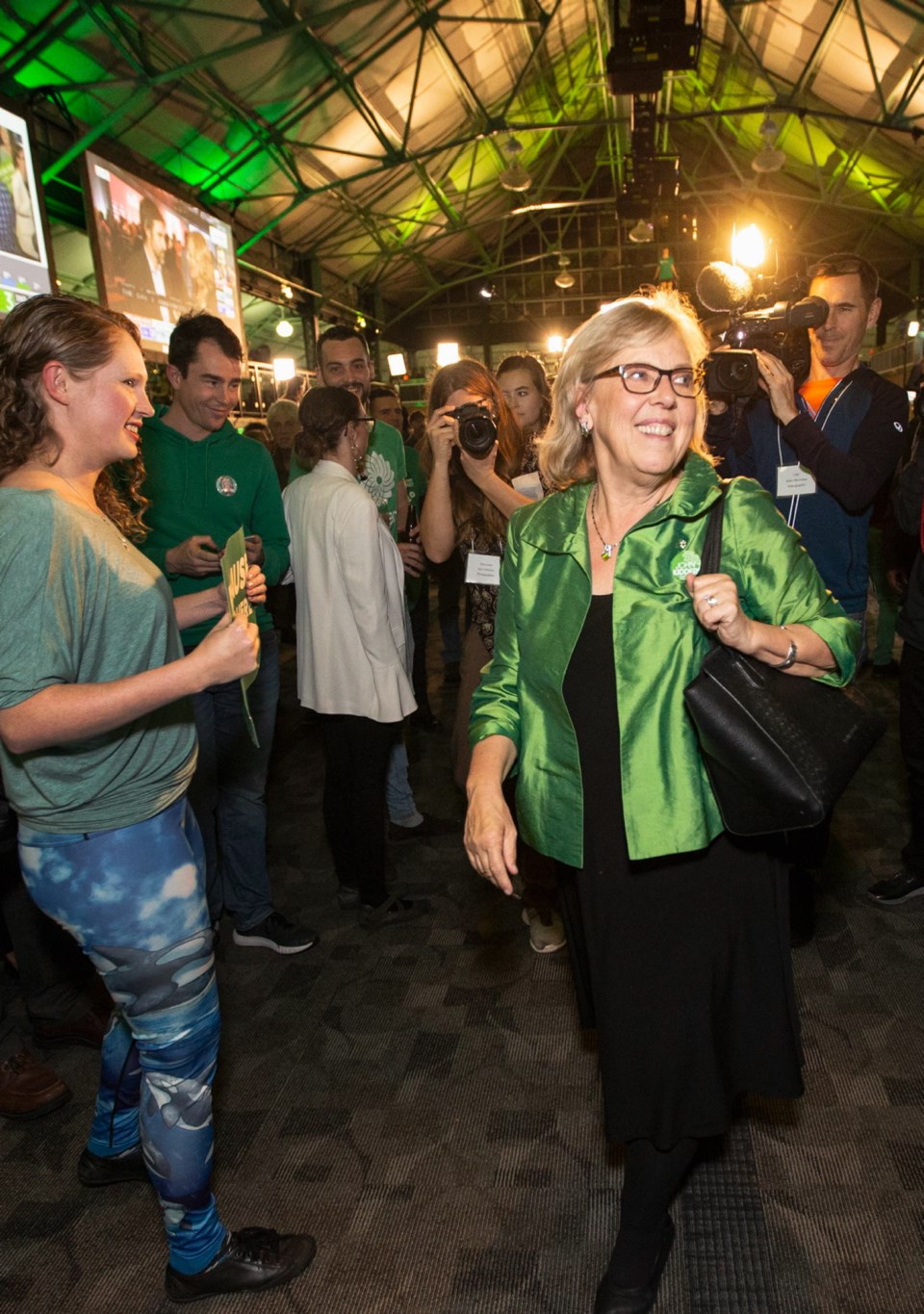Elizabeth May indicated this would be her last federal election as leader of the Green party, but the opportunities of a minority government have her hitting the pause button on stepping down.
“I’ve got a lot to think about because we could be into an election again very soon,” said May. “And if it’s an election very soon it would be a bad time to step down.”
The Liberals won the most seats, 157, falling short of the 170 needed for a majority. The Greens won three seats, up from two in the last Parlaiment.
May easily won in Saanich-Gulf Islands, Paul Manly held onto the Nanaimo-Ladysmith seat he won in a byelection in the spring and Jenica Atwin won in Fredericton to become the first Green MP elected outside B.C.
The Greens established a foothold in Atlantic Canada, held onto two seats on Vancouver Island and doubled its national popular vote to 6.1 per cent on Monday night.
But it fell short of the 12 seats it wanted to attain official party status in Parliament.
In a minority parliament, Prime Minister Justin Trudeau will need to co-operate with other parties to survive a non-confidence vote.
“I won’t be making any decisions obviously until I’ve talked to Paul and Jenica to see how they feel about what our future looks like in the House” said May. “Those are conversations that will, I think, take several months.”
May is hopeful that Environment Minister Catharine McKenna, who defended the Trans Mountain pipeline purchase, will be replaced with climate activist Steven Guilbeault, who won the Quebec riding of Laurier — Sainte-Marie for the Liberals.
Guilbeault is one of Quebec’s best known environmentalists and is against the Trans Mountain pipeline expansion, which the Liberal party supports.
Despite being against the pipeline, Guilbeault maintains the Liberals are the only party with a serious climate plan and a chance of governing.
“I think if we see a change in who is minister of the environment and if it’s Steven Guilbeault — knowing he’s against the Trans Mountain pipeline personally — we have to grab that chance and work on the minister of the environment personally,” said May.
The Greens campaigned on meeting the Paris targets for lowering emissions 60 per cent below 2005 levels to stabilize a global temperature rise to 1.5 C as recommended by the Intergovernmental Panel on Climate Change. The Trudeau government has said the country is on track to reduce emissions by 30 per cent below 2015 levels, as set by Stephen Harper’s Conservative government. “You can’t build a pipeline and achieve those targets,” said May.
Michael Prince, a political scientist at the University of Victoria, said a minority government is a good result for May and the Greens.
“For Elizabeth May this is game time,” said Prince, pointing to how hard and long she’s worked on climate action.
“I think if this is an 18- to 24-month minority government she can have a voice and continue to have that profile even more so than she had in a majority.”
The campaign was bittersweet for the Liberal, Conservative, NDP and Green leaders, said Prince, with only Bloc Leader Yves-Francois Blanchet happy with the result.
“But for Elizabeth, I think the best result for her was that it was a minority parliament and she’s going to have an opportunity to flex her muscles, and having Jody Wilson-Raybould there will be an interesting dynamic.
“So I’d be surprised if Elizabeth said she’s suddenly stepping down,” said Prince. “I think this is going to provide her with some real opportunities.”
Green party bylaws require a leadership review to be held within six months of any election in which the party’s leader does not become prime minister.



